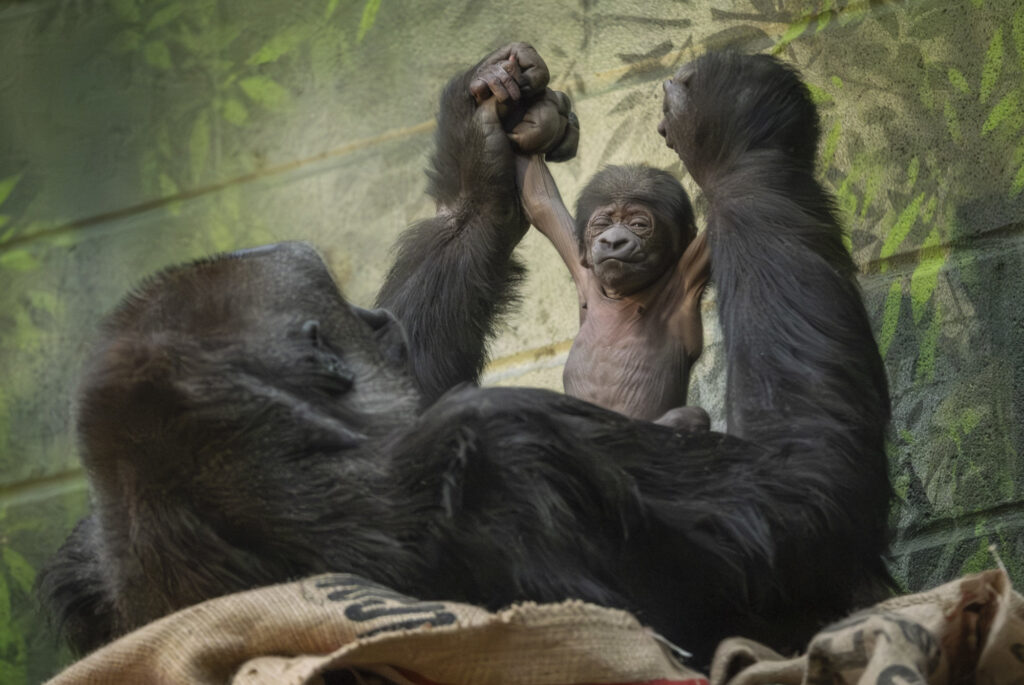
London Zoo celebrated the birth of a baby Western Lowland Gorilla, a critically endangered species, after a swift 17-minute delivery. This birth is big news because the newborn belongs to a critically endangered subspecies. Over the past 25 years, disease, deforestation and poaching have led to a reduction in numbers of more than 60 %. Therefore, intervention through breeding programmes such as this one is essential to keep the safety net of the species under human care.
This project is part of the Ex-situ programmes of the European Association of Zoos and Aquaria (EAZA). These programmes aim to manage animal species populations by members of this institution to ensure healthy populations for their conservation.
The baby’s father is Kiburi, a male gorilla who came to London Zoo from Loro Parque in Tenerife in November 2022 as part of the international captive breeding programme for Western Lowland Gorillas. This programme ensures the preservation of a genetically diverse and healthy population of the gorilla subspecies. Kiburi belonged to the group of male gorillas resident at Loro Parque and travelled to London to start his own family in November 2022.
The baby’s mother is Mjukuu who gave birth after a pregnancy of about eight and a half months on Wednesday 17 January at 9.34 am. The birth went smoothly as Kathryn Sanders, London Zoo’s Primate Section Manager, recounted: “We started our day as normal – we gave the gorillas their breakfast and began our cleaning routines. When we returned to their back dens, we could see Mjukuu was starting to stretch and squat – a sign that she was in labour.”
Through CCTV cameras, the park’s gorilla care staff closely monitored the delivery and the happy arrival of the baby gorilla, allowing the events to unfold as smoothly and naturally as possible.
“After a very quick labour – just 17 minutes – Mjukuu was spotted on camera tenderly holding her newborn and demonstrating her wonderful mothering instincts – cleaning her infant and checking it over.”
Gorillas are deeply maternal, caring for their young in a very affectionate way. After the birth, the most touching moments took place: The cuddling and snuggling, and the loving inspection with which Mjukuu greeted her baby showed the extraordinary qualities of this remarkable species. Afterwards, the young members of the group, Alika and Gernot, approached with curiosity to meet the new resident.
Zookeepers are yet to confirm the sex of the infant, who has remained closely snuggled in its adoring mum’s arms. The infant will remain in close contact with mum for around the first six months of its life.
Kathryn added: “To say we’re happy about this new arrival would be a huge understatement – we’ve all been walking around grinning from ear to ear. We’ll be giving mum and baby lots of time and space to get to know each other, and for the rest of the troop to get used to their new addition – they’re as excited as we are and can’t stop staring at the baby”.
Another success that reaffirms the important work of accredited zoos that strive for the conservation and protection of species.













